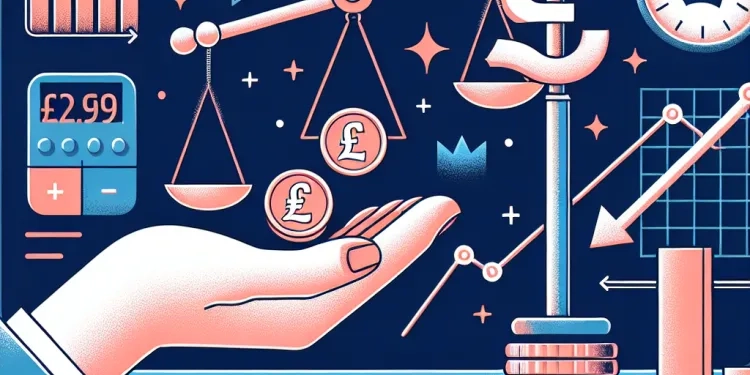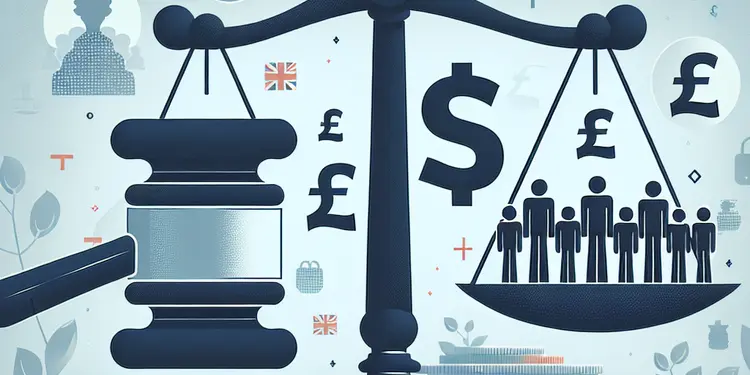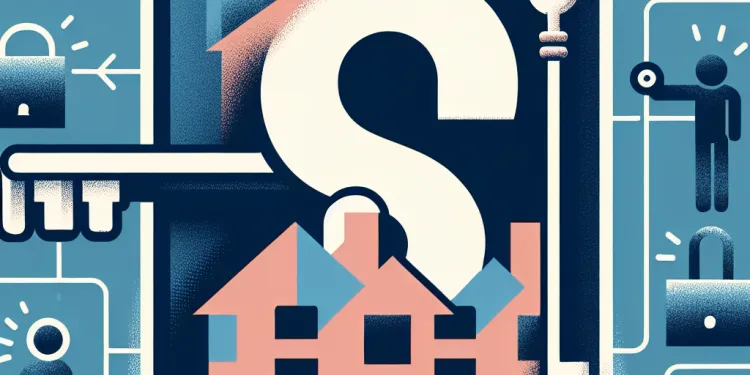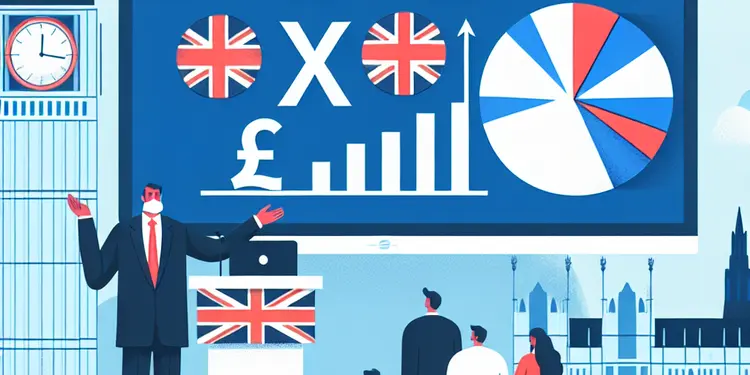
Find Help
More Items From Ergsy search
-

When are the proposed cuts expected to take effect?
Relevance: 100%
-

What is the main reason for the proposed cuts to housing benefits?
Relevance: 95%
-

Proposed Welfare Cuts and Their Impact on Vulnerable Populations
Relevance: 95%
-

Are there any groups exempt from the proposed cuts?
Relevance: 92%
-

What are the proposed Cuts to Housing Benefits Amid Rising Rents?
Relevance: 88%
-

Who will be most affected by the proposed cuts to housing benefits?
Relevance: 85%
-

How will the proposed cuts impact tenants?
Relevance: 76%
-

Why is there a call for public consultation regarding the cuts?
Relevance: 66%
-

What advocacy efforts are being undertaken to resist the cuts?
Relevance: 59%
-

How can individuals contribute to the discussion on housing benefit cuts?
Relevance: 54%
-

Legal Aid Cuts: Campaigners Warn of Access to Justice Crisis
Relevance: 51%
-

Is there a plan to offer additional support to offset housing benefit cuts?
Relevance: 51%
-

How will the cuts impact landlords?
Relevance: 47%
-

What are the potential long-term impacts of housing benefit cuts?
Relevance: 46%
-

Pension Proposals Spark Debate on Retirement Age and Benefits
Relevance: 46%
-

Government Faces Legal Challenge Over Proposed Immigration Bill
Relevance: 46%
-

Why is the UK cutting funding to AIDS, Tuberculosis, and Malaria research?
Relevance: 46%
-

Did the US propose reforms to the WHO before deciding to leave?
Relevance: 45%
-

Is there any legal recourse for those affected by the housing benefit cuts?
Relevance: 45%
-

What can tenants do if they are affected by the cuts?
Relevance: 45%
-

What is the relationship between rising rents and housing benefit cuts?
Relevance: 44%
-

What role do housing associations have amid these cuts?
Relevance: 44%
-

What is the reason behind proposing a social media ban for under 16s in the UK?
Relevance: 43%
-

How have housing benefit recipients reacted to the proposed changes?
Relevance: 39%
-

Is there a proposal for a wealth tax in the UK?
Relevance: 32%
-

Could there be a reduction in the basic rate of income tax by 2026?
Relevance: 25%
-

What are the reasons for the UK cutting funding to AIDS, Tuberculosis, and Malaria research?
Relevance: 21%
-

Debate Intensifies Over Welfare Reforms Impacting Disabled Citizens
Relevance: 21%
-

How significant is the reduction in funding for AIDS, Tuberculosis, and Malaria research?
Relevance: 20%
-

Who is pushing for a social media ban for under 16s in the UK?
Relevance: 19%
-

When will the new HMRC tax changes be officially confirmed?
Relevance: 19%
-

Has the UK parliament discussed the feasibility of a social media ban for under 16s?
Relevance: 19%
-

Is the UK introducing a Social Media ban for under 16's?
Relevance: 19%
-

How can I kill bamboo in my garden?
Relevance: 19%
-

Are there any countries that have implemented a social media ban for under 16s?
Relevance: 18%
-

Chancellor Unveils Plans to Reform UK Tax System
Relevance: 18%
-

How do you attach a stoma bag?
Relevance: 17%
-

Legal Experts Warn of Consequences in Upcoming AI Regulation Bill
Relevance: 17%
-

Can I negotiate with my landlord to avoid eviction?
Relevance: 17%
-

Calls to Ban Vapes Near School Grounds Gain Momentum
Relevance: 17%
Introduction
With fiscal policies continuously evolving in response to economic challenges, the UK government occasionally proposes budgetary cuts to manage public sector spending. Understanding when these proposed cuts are expected to take effect is crucial for both public sector employees and the general public. This article aims to provide insights into the typical timelines and processes involved when the UK government announces spending cuts.
Announcement and Legislation
The timeline for when proposed cuts are expected to take effect generally begins with an official announcement. Usually, such announcements take place during key fiscal events, such as the Chancellor’s Budget Speech or Autumn Statement. However, one must note that an announcement is merely the first step. Once proposed cuts are announced, they must go through a series of legislative processes before implementation. This process typically involves debates and scrutiny in Parliament, where MPs and Lords have opportunities to discuss and challenge the proposals.
Approval and Implementation
The approval process for proposed budgetary cuts varies depending on their scope and the areas they affect. Larger, more controversial cuts may require detailed legislative proposals and could undergo multiple readings in both Houses of Parliament. During this period, amendments can be proposed, and negotiations between different political parties might take place. Only after receiving Parliamentary approval can the proposed cuts be enacted into law. Once this legislative approval is granted, the government sets a timeline for implementation, often aligning with the beginning of a new fiscal year on 6 April.
Practical Considerations and Delays
In practice, the timeline for implementing cuts can be influenced by several factors. Administrative and strategic planning within affected departments may cause delays. Departments will need to assess the impact of cuts and make necessary adjustments to staffing and services, which often involves complex logistical planning. Furthermore, external factors such as public backlash, legal challenges, or shifts in economic forecasts can also contribute to delays. Consequently, while initial proposals might suggest a specific date, the actual implementation may be pushed back.
Conclusion
Understanding the timeline for when proposed budgetary cuts take effect requires awareness of both the legislative process and practical considerations. While announcements provide early indications, it is through parliamentary debates and necessary adjustments within government departments that the final timeline is set. For those directly affected by such cuts, staying informed about parliamentary schedules and government announcements is essential. Nonetheless, it is always prudent to anticipate potential delays due to unforeseen challenges or changes in the broader economic landscape.
Introduction
Sometimes the UK government needs to spend less money. This means they might cut the budget. This affects people who work for the government and everyone else too. It's important to know when these cuts might happen. This article will help explain when and how these cuts take place.
Announcing the Cuts
The government usually talks about cuts during important talks or meetings. These could be big speeches like the Budget Speech. But saying cuts will happen is just the first step. After the government says they want to cut the budget, they need to follow a process. This means having talks in Parliament where lots of people check and talk about the plan.
Approval and Starting the Cuts
The type of cut can change how fast it happens. If the cut is big or difficult, there might be more talks and plans in Parliament. Different groups might want to change parts of the plan. Only when everyone agrees, the cuts can become real. The government will then say when the cuts will start, often at the beginning of the new financial year on 6 April.
Things That Can Delay Cuts
Sometimes, cuts don't happen right away. This can be because of planning inside the government. Departments need time to figure out how they will work with less money. Also, if people are unhappy or there are other problems, cuts might be slowed down. So, even if a date is given, it might change.
Conclusion
Knowing when cuts will happen means understanding both government talks and real-world problems. Announcements can give us a hint, but the final date depends on many talks and plans. To know more, keep up with government news. Remember, things can change, so be ready for delays.
Frequently Asked Questions
When exactly are the proposed cuts expected to take effect?
The exact timing for the proposed cuts to take effect will depend on the approval process and any necessary administrative steps. Stay updated with official announcements for precise dates.
Have specific dates been announced for when the proposed cuts will go into effect?
Specific dates will be announced once the proposal has been fully reviewed and approved by the relevant authorities.
Will the proposed cuts take effect immediately after approval?
Not necessarily. There might be an implementation period after approval during which logistics and communications are handled.
Are there any delays expected in the implementation of the proposed cuts?
Any potential delays will be communicated through official channels. Factors such as political discussions or logistical constraints can cause delays.
Is there a timeline for when the proposed cuts are supposed to take effect?
The timeline typically depends on legislative processes and budget cycles, so it varies based on jurisdiction and circumstances.
How will we know when the proposed cuts are going to be implemented?
Information will be shared through official announcements, press releases, and updates on relevant government or organizational websites.
Can the proposed cuts be implemented before the start of the next fiscal year?
This depends on the nature of the cuts and the processes required for implementation; some might be scheduled to align with fiscal years.
What factors influence when the proposed cuts will take effect?
Factors include the approval process, legislative reviews, potential legal challenges, and required administrative adjustments.
Are the proposed cuts set to take effect at the start of a new quarter?
It is possible, as aligning changes with the start of a new fiscal quarter often makes tracking and implementation easier.
Will the proposed cuts be phased in over time or occur all at once?
This depends on the nature of the cuts and strategic decisions; some may be gradual to minimize impact.
Is there a public consultation period that might affect when the cuts take effect?
Some proposals require a public consultation period, which can affect the timing of when cuts are implemented.
Do the proposed cuts need to be approved by multiple bodies?
Yes, often cuts need approval from multiple legislative or administrative bodies, which can affect the implementation timeline.
When will more information be available regarding the timing of the proposed cuts?
Information will be disseminated as the proposal progresses through the approval stages, often through official channels.
Are there potential legal challenges that could delay when the cuts take effect?
Yes, legal challenges can sometimes delay the implementation of proposed cuts if there are significant disputes.
If the proposed cuts are revised, how might that affect their implementation date?
Revisions may reset or delay the original timeline, depending on the extent of the changes required.
Can the proposed cuts be implemented partially at first?
It's possible for certain cuts to be implemented in stages to assess impacts or due to logistical constraints.
Who decides when the proposed cuts will take effect?
Decision-makers include legislators, administrative officers, and sometimes executive leaders, depending on government or organization structure.
Could external factors influence the effective date of the proposed cuts?
Yes, economic conditions, political shifts, or public response might influence the timing.
Are there examples of when proposed cuts took effect sooner or later than expected?
There have been instances where proposed cuts were expedited due to urgent need or postponed due to unforeseen circumstances.
How can affected parties prepare for when the proposed cuts take effect?
Stay informed through official updates, seek guidance from relevant bodies, and plan contingencies as details become clearer.
When will the cuts start?
The cuts will happen soon. It is important to know when. You can use a calendar or ask someone to help you remember the date.
The cuts will happen after they are approved. We have to wait for some important steps to be taken first. Keep an eye on official news to find out the exact dates.
Do we know the exact days when the cuts will start?
Ask or look for information to see if someone has said the days when the cuts will begin. You can use tools like a calendar to mark important days. You can also ask someone for help if you are not sure.
We will tell you the dates soon. First, important people need to check and say yes to our plan.
Do the cuts happen right away after they say yes?
No, it doesn’t have to be right away. There might be some time after things are approved where they work on plans and talk to people.
Will the planned cuts happen late?
It's good to ask if the cuts will take longer to start. Here are some tips to help:
- Use simple words to describe the cuts.
- Ask if there is a new start time for the cuts.
- Use pictures or charts to show the timeline if possible.
We will let you know if there are any delays. This will be done through official methods. Things like political talks or problems with transport can cause delays.
When will the cuts start happening?
The timeline depends on laws and money plans. This means it can change depending on where you live and what is happening.
How will we know when the cuts will happen?
First, listen for updates from local news or community meetings.
Check notices from schools or local government.
Ask someone you trust to explain any information you get.
News will be shared in different ways. You can find it in official announcements, press releases, and on important websites from the government or other groups.
Can we make the planned cuts before the new money year begins?
Tools to help:
- Use simple words.
- Break down tasks step by step.
This answer depends on what kind of cuts are made and what needs to be done. Some cuts might happen at the same time as the government's money plans for the year.
What decides when the cuts will happen?
Here are some things that can affect when the cuts will start:
- The plans have to be approved first.
- There may be changes in the plans before they start.
- People need time to get ready for the changes.
You can use tools like a calendar to track dates.
If you need help understanding, ask someone you trust to explain it to you.
There are a few things to think about, like:
- Getting the right people to say "yes".
- The government looking at the plans.
- Problems with the law that might happen.
- Changing how things are done.
Here are some tips to help understand:
- Ask someone to explain it to you.
- Use a computer tool that reads out loud.
- Write down what you understand in your own words.
Will the cuts start at the beginning of the next quarter?
Sometimes businesses make cuts to save money. A "quarter" means a 3-month part of the year. There are 4 quarters in a year.
To help you remember when a new quarter starts, you can use a calendar. A calendar shows the months and helps you keep track of the days.
Yes, it can be a good idea. Starting changes at the beginning of a new money time period can make it easier to watch and put into action.
Will the planned cuts happen slowly or all at once?
Let's make this question easier to understand. We are asking if the cuts will happen step by step or all at the same time.
Here are some tips to help understand:
- Read the question out loud.
- Think about what "cuts" means – it's like taking away or reducing something.
- Ask someone for help if you don't understand.
- Use tools like picture aids to see what "slowly" and "all at once" mean.
This depends on what kind of cuts are being made and the choices people make. Some cuts might happen slowly so they are not too hard on everyone.
Will people have time to share their thoughts before the cuts happen?
Sometimes, there is a time when people can say what they think about changes. This is called a 'consultation period'.
During this time, you can talk or write about your thoughts on the changes.
It can help to: - Ask someone to explain the changes to you. - Write down questions or thoughts. - Use simple words when you share your ideas.
Some plans need to be shared with people first. This can change when changes or cuts happen.
Do the planned cuts need approval from more than one group?
We want to find out if more than one group needs to say "yes" to the cuts. This means that before the cuts happen, different groups might have to agree.
To understand better, you can:
- Use a dictionary to look up words you don't know.
- Ask someone to read with you and explain tricky parts.
Yes, sometimes many people must agree before making cuts. This can make things take longer.
When will we know more about the timing of the cuts?
We will share information as the plan goes through each step to get approved. This usually happens through official announcements.
Can the law slow down when the money cuts happen?
Sometimes, rules and laws might stop or slow down the money cuts from happening. Lawyers and courts can help decide if the cuts should wait.
If this is hard to understand, you can ask someone to read it with you or use a computer to help. You can also draw pictures to help make sense of it.
Yes, court problems can slow down changes if people disagree a lot.
If the planned cuts change, when will they start?
If the cuts change, they might start at a different time.
To understand better, you can:
- Ask someone to explain the changes.
- Use tools like Read Aloud to listen to the text.
- Break down sentences into smaller parts.
Changing things might take more time and could slow down the original plan. How much more time it takes depends on what needs to be changed.
Can we start with small cuts first?
Sometimes, changes happen in small steps to see what happens or because it's hard to do all at once.
Who says when the cuts will start?
Cuts mean spending less money. Here is how we decide when cuts happen:
- Bosses talk about the cuts.
- They set a start date.
If you need help, ask a friend or family member.
You can also use pictures or notes to understand better.
People who make choices are called decision-makers. They can be lawmakers, people who work in government offices, or sometimes leaders who run things. It depends on how the government or organization is set up.
Can outside things change when the proposed cuts start?
Helpful Tips:
- Use simple words.
- Break information into small parts.
- Use drawings or pictures if needed.
- Ask someone to read aloud with you.
Yes, things like money, government changes, or how people react can change when things happen.
Can you tell me if cuts happened earlier or later than planned?
Sometimes people plan to make cuts to save money. Did these cuts happen at the time they were supposed to, or did they happen earlier or later?
If you find reading hard, try using tools that read text out loud. You can also ask someone you trust to explain what things mean.
Sometimes, cuts happen quickly because they are needed right away. Other times, cuts are delayed because something unexpected happens.
- Use simple words.
- Break information into small parts.
- Use pictures or diagrams to help explain.
- Read slowly and repeat if needed.
- Ask someone to read with you, if that helps.
How can people get ready for the planned cuts?
Keep up to date with official news. Ask the right people for help. Make backup plans as you get more information.
Useful Links
This website offers general information and is not a substitute for professional advice.
Always seek guidance from qualified professionals.
If you have any medical concerns or need urgent help, contact a healthcare professional or emergency services immediately.
Some of this content was generated with AI assistance. We’ve done our best to keep it accurate, helpful, and human-friendly.
- Ergsy carfully checks the information in the videos we provide here.
- Videos shown by Youtube after a video has completed, have NOT been reviewed by ERGSY.
- To view, click the arrow in centre of video.
- Most of the videos you find here will have subtitles and/or closed captions available.
- You may need to turn these on, and choose your preferred language.
- Go to the video you'd like to watch.
- If closed captions (CC) are available, settings will be visible on the bottom right of the video player.
- To turn on Captions, click settings .
- To turn off Captions, click settings again.
More Items From Ergsy search
-

When are the proposed cuts expected to take effect?
Relevance: 100%
-

What is the main reason for the proposed cuts to housing benefits?
Relevance: 95%
-

Proposed Welfare Cuts and Their Impact on Vulnerable Populations
Relevance: 95%
-

Are there any groups exempt from the proposed cuts?
Relevance: 92%
-

What are the proposed Cuts to Housing Benefits Amid Rising Rents?
Relevance: 88%
-

Who will be most affected by the proposed cuts to housing benefits?
Relevance: 85%
-

How will the proposed cuts impact tenants?
Relevance: 76%
-

Why is there a call for public consultation regarding the cuts?
Relevance: 66%
-

What advocacy efforts are being undertaken to resist the cuts?
Relevance: 59%
-

How can individuals contribute to the discussion on housing benefit cuts?
Relevance: 54%
-

Legal Aid Cuts: Campaigners Warn of Access to Justice Crisis
Relevance: 51%
-

Is there a plan to offer additional support to offset housing benefit cuts?
Relevance: 51%
-

How will the cuts impact landlords?
Relevance: 47%
-

What are the potential long-term impacts of housing benefit cuts?
Relevance: 46%
-

Pension Proposals Spark Debate on Retirement Age and Benefits
Relevance: 46%
-

Government Faces Legal Challenge Over Proposed Immigration Bill
Relevance: 46%
-

Why is the UK cutting funding to AIDS, Tuberculosis, and Malaria research?
Relevance: 46%
-

Did the US propose reforms to the WHO before deciding to leave?
Relevance: 45%
-

Is there any legal recourse for those affected by the housing benefit cuts?
Relevance: 45%
-

What can tenants do if they are affected by the cuts?
Relevance: 45%
-

What is the relationship between rising rents and housing benefit cuts?
Relevance: 44%
-

What role do housing associations have amid these cuts?
Relevance: 44%
-

What is the reason behind proposing a social media ban for under 16s in the UK?
Relevance: 43%
-

How have housing benefit recipients reacted to the proposed changes?
Relevance: 39%
-

Is there a proposal for a wealth tax in the UK?
Relevance: 32%
-

Could there be a reduction in the basic rate of income tax by 2026?
Relevance: 25%
-

What are the reasons for the UK cutting funding to AIDS, Tuberculosis, and Malaria research?
Relevance: 21%
-

Debate Intensifies Over Welfare Reforms Impacting Disabled Citizens
Relevance: 21%
-

How significant is the reduction in funding for AIDS, Tuberculosis, and Malaria research?
Relevance: 20%
-

Who is pushing for a social media ban for under 16s in the UK?
Relevance: 19%
-

When will the new HMRC tax changes be officially confirmed?
Relevance: 19%
-

Has the UK parliament discussed the feasibility of a social media ban for under 16s?
Relevance: 19%
-

Is the UK introducing a Social Media ban for under 16's?
Relevance: 19%
-

How can I kill bamboo in my garden?
Relevance: 19%
-

Are there any countries that have implemented a social media ban for under 16s?
Relevance: 18%
-

Chancellor Unveils Plans to Reform UK Tax System
Relevance: 18%
-

How do you attach a stoma bag?
Relevance: 17%
-

Legal Experts Warn of Consequences in Upcoming AI Regulation Bill
Relevance: 17%
-

Can I negotiate with my landlord to avoid eviction?
Relevance: 17%
-

Calls to Ban Vapes Near School Grounds Gain Momentum
Relevance: 17%


